New Technologies have Changed the Way Children Spend their Free Time - IELTS Writing Task 2
Learn how to present a well-rounded, Band 7+ essay for the IELTS advantages/disadvantages topic, ‘New Technologies have Changed the Way Children Spend their Free Time’, by studying the three sample essays, an essay outline, and relevant IELTS vocabulary.
Table of Contents
- Question for New Technologies have Changed the Way Children Spend their Free Time - IELTS Writing Task 2
- Structure Breakdown for IELTS Advantages/Disadvantages Essay
- Sample Answers for New Technologies have Changed the Way Children Spend their Free Time IELTS Writing Task 2
- Connectors Used in the Above Sample Answers of IELTS Writing Task 2: New technologies have changed the way children spend their free time
- Vocabulary to Use for New Technologies have Changed the Way Children Spend their Free Time - IELTS Writing Task 2

IELTS Writing Prediction Questions for 2024
Achieving proficiency in IELTS Writing Task 2 requires you to write a well-structured and cohesive essay in response to a given topic. For example, for an IELTS Advantages/Disadvantages essay topic like ‘New Technologies have Changed the Way Children Spend their Free Time’, you will be presented with a statement or opinion, and you are asked to list the pros and cons of the topic and state your opinion, if asked. Hence, it is essential to enhance your essay-writing abilities before undertaking the IELTS to ensure success.
In this article, we will examine sample answers for the essay ‘New Technologies have Changed the Way Children Spend their Free Time’, along with an outline and relevant vocabulary to help you craft a well-structured and compelling advantages/disadvantages essay.
Question for New Technologies have Changed the Way Children Spend their Free Time - IELTS Writing Task 2
You should spend about 40 minutes on this task.
New technologies have changed the way children spend their free time. Do you think the advantages outweigh the disadvantages? Give reasons for your answer and include any relevant examples from your own knowledge or experience.
You should write at least 250 words.
Structure Breakdown for IELTS Advantages/Disadvantages Essay
|
Introduction
Body Paragraph 1
Body Paragraph 2
Conclusion
|
Sample Answers for New Technologies have Changed the Way Children Spend their Free Time IELTS Writing Task 2
For those aiming for a perfect IELTS score of band 9, a detailed study of the three IELTS Band 9 essay samples provided below is recommended; each essay thoroughly addresses the IELTS Writing Task 2 topic, New Technologies have Changed the Way Children Spend their Free Time.
New Technologies have Changed the Way Children Spend their Free Time: Sample Answer 1
Currently, it is true that the way children spend their leisure time has been changed by new technology. While this has several benefits, In my opinion, the the drawbacks far outweigh them.
To begin with, computer games tend to be enjoyable for many kids and can potentially enhance their cognitive abilities. Strategic video games, for instance, compel players to hone their problem-solving aptitude and adapt to unforeseen circumstances. As a result, children who regularly play such games are likely to sharpen their logical reasoning and problem-solving prowess. Furthermore, the vast trove of easily accessible information online can benefit young people through early internet exposure. When children are able to surf the web from a young age, they can embark on the learning process sooner and accelerate their knowledge acquisition as they mature.
However, I would argue that the advantages discussed above are outweighed by the disadvantages. One main drawback is that children who enjoy spending time in front of the computer screen are often reluctant to do exercise. Low physical activity levels are likely to result in children becoming overweight, and in turn, they would end up being obese. In addition, some games tempt people to continue playing for hours, which could lead to gaming addiction. In role-playing games, for instance, people might need to stay in front of the computer for several hours in order to progress to higher levels, and therefore children may spend an excessive amount of time on games.
In conclusion, while there are some advantages to children spending time on advanced technologies, it seems to me that the disadvantages are more significant. Technology has been triumphant over sundry verticals nowadays which has modified the leisure time spent by the children around. (285 words)
Looking for feedback on your IELTS Writing essay?
Submit your IELTS Writing Essay for evaluation today!
New Technologies have Changed the Way Children Spend their Free Time: Sample Answer 2
In today’s digital era, children’s leisure activities have undergone a profound transformation due to the pervasive influence of innovative technologies. While concerns about potential drawbacks are valid, I contend that the benefits derived from these technological advancements far outweigh any associated disadvantages for today’s youth.
The ubiquity of screens and digital interfaces has redefined how the younger generation engages with their free time, marking a paradigm shift in childhood experiences. Despite concerns about adverse effects, particularly excessive screen time, a judicious approach to technological integration, coupled with parental guidance, can effectively navigate these challenges. Concerns include potential hazards to physical and mental well-being, with research linking extended screen usage to decreased physical activity and an increased risk of obesity among children. Overexposure to digital interfaces is associated with potential setbacks in cognitive development, academic performance, and social skills. However, responsible technological use can mitigate these risks.
On the positive side, technology significantly benefits child development and learning. Educational applications and interactive games offer captivating alternatives to traditional learning methods, making subjects like math, science, and language more engaging. Video games, when approached responsibly, facilitate the development of problem-solving skills, critical thinking, and hand-eye coordination. Social media platforms and messaging applications serve as invaluable tools for maintaining connections in an interconnected world.
In conclusion, while adopting technology in children’s leisure activities raises concerns, the transformative potential for development and education cannot be overlooked. By carefully navigating risks through parental guidance and responsible usage, we can harness the myriad benefits that technology brings to the lives of today’s tech-savvy youth. (258 words).
New Technologies have Changed the Way Children Spend their Free Time: Sample Answer 3
Unlock Sample Answer 3
Technology has been triumphant over sundry verticals nowadays which has modified the leisure time spent by the children around. Although that comes along with the pace digitization has been moving ahead with and could prove advantageous in the same regard, however, it has its major share of drawbacks that supersedes its advantages in the long marathon. In the forthcoming paragraphs, this essay will analyze both sides.
There are a few pros to children putting their hours of free time in learning the advancement of the technologies and the modus operandi of the same as that keeps them moving and aligning with the dynamic world, especially, during current times. It enhances their digital knowledge that somehow has become the need of the hour in every walks of life. Using technology not only improves children’s technical skills, but also keeps them engaged and focused, enhancing their expertise in this area. For example, learning coding, programming, and web development expands their knowledge and prepares them for future job opportunities.
However, there are also significant downsides to children’s technology use. Exposure at a young age can be harmful to children’s development and thinking. Teens are more vulnerable to cybercrimes and phishing. Inappropriate content and sites can also do more harm than good. Heavy technology use has health risks. Violent graphics in games are another major concern. Certain dangerous games like “Bluewhale” have been banned after being linked to youth suicide. Overall, while technology has benefits, uncontrolled use at a young age poses risks of crime, inappropriate content, and physical and mental health issues.
All in all, it could be concluded that although technical expansion is a requirement right now, the pitfalls of children spending their free time on the same often overtakes its advantages and is riskier in the long run. (297 words)
Sign up for IELTS online classes today and uncover valuable tips for writing a high-scoring IELTS Writing Task 2 essay!
Connectors Used in the Above Sample Answers of IELTS Writing Task 2: New technologies have changed the way children spend their free time
Connectors, also known as connectives or transition words, are words or phrases that link ideas or parts of a sentence or paragraph together. Here are some of the connectors & linking words for IELTS Writing Task 2 used in the above sample answers:
- While
- Due to
- Despite
- However
- Furthermore
- In addition
- On the flip side
- On the positive side
- All in all
- Although
- Overall
- Moreover
Vocabulary to Use for New Technologies have Changed the Way Children Spend their Free Time - IELTS Writing Task 2
Given below are some important IELTS vocabulary used in the sample answers for the topic, ‘New Technologies have Changed the Way Children Spend their Free Time’, that you can use while framing your answer for this specific topic or other related topics.
|
Word |
Meaning |
Example Sentence |
|---|---|---|
|
Cognitive |
related to mental processes such as thinking, learning, and remembering. |
Engaging in chess or other strategic board games can enhance children’s cognitive development by stimulating critical thinking. |
|
Strategic |
involving a plan or strategy to achieve a specific goal. |
Playing strategic sports, like chess or soccer, encourages children to think strategically and make quick decisions on the field. |
|
Reluctant |
unwilling or hesitant to do something. |
Children who prefer indoor activities may be reluctant to participate in outdoor adventures like hiking or camping. |
|
Obese |
extremely overweight, often to the point of negatively affecting health. |
Unhealthy eating habits, combined with a lack of physical activity, can lead to children becoming obese over time. |
|
Addiction |
a compulsive and harmful dependence on a substance or activity. |
Excessive engagement in social media can lead to addiction, where individuals find it challenging to disconnect from online platforms. |
|
Excessive |
going beyond what is necessary or normal. |
Spending an excessive amount of time on video games may result in children neglecting other important aspects of their lives. |
|
Triumphant |
having achieved victory or success. |
The local soccer team was triumphant in the championship, celebrating their hard-earned victory. |
|
Sundry |
various or diverse. |
Outdoor activities offer sundry options for children, from hiking and biking to exploring nature and playing team sports. |
|
Profound |
having deep significance or impact. |
The digital revolution has had a profound effect on how children experience leisure. |
|
Pervasive |
spread widely and consistently throughout an area or group. |
Technology has become pervasive, influencing every aspect of children’s daily lives. |
|
Ubiquity |
the state of being present, appearing, or found everywhere. |
The ubiquity of smartphones highlights their integral role in contemporary society. |
|
Paradigm Shift |
a fundamental change in approach or underlying assumptions. |
The advent of digital technology represents a paradigm shift in how children engage with entertainment. |
|
Judicious |
showing wisdom and good judgment in decision-making. |
A judicious approach to screen time involves balancing technology use with other activities. |
|
Adverse |
harmful or unfavorable. |
Excessive screen time can have adverse effects on a child’s physical and mental well-being. |
|
Mitigate |
to lessen the severity or impact of something. |
Parental guidance can help mitigate the potential risks associated with technology use. |
|
Interactive |
involving communication or action between people or things. |
Educational apps provide an interactive learning experience for children. |
|
Captivating |
attracting and holding the interest or attention. |
Video games with captivating storylines can engage children in constructive ways. |
|
Invaluable |
extremely useful or indispensable. |
Social media has become an invaluable tool for staying connected with friends and family. |
|
Digitization |
the process of converting information into digital format. |
The rapid digitization of historical documents has made them more accessible to researchers. |
|
Advantageous |
beneficial or favorable. |
Regular exercise is advantageous for maintaining good health and overall well-being. |
|
Modus Operandi |
a particular way of doing something; method or procedure. |
Detectives carefully analyzed the criminal’s modus operandi to solve the mysterious case. |
|
Drawbacks |
disadvantages or negative aspects. |
Despite the benefits of remote work, there are drawbacks, such as potential feelings of isolation. |
|
Pros |
advantages or positive aspects. |
Pursuing a higher education degree has numerous pros, including expanded career opportunities. |
|
Discernment |
the ability to judge or understand things clearly. |
Developing discernment is crucial when evaluating the reliability of information in the age of misinformation. |
|
Acumen |
skill or expertise in a particular area. |
A successful entrepreneur often possesses financial acumen, enabling them to make wise business decisions. |
|
Proliferation |
rapid and widespread growth. |
The proliferation of social media platforms has changed the way people communicate and share information. |
In conclusion, for those preparing for the writing exam, ‘New Technologies have Changed the Way Children Spend their Free Time - IELTS Writing Task 2’ is not only one of the common IELTS essay topics for IELTS Writing Task 2 but also an excellent opportunity to practice balanced arguments and critical thinking. Moreover, engage regularly in IELTS Writing practice tests that cover themes like technology, childhood, and modern lifestyles to enhance your ability to respond effectively to similar prompts on the exam and maximize your band score.
Useful Links:
- Young People Are Admiring Media and Sports Stars - IELTS Writing Task 2
- Globalization has Both Advantages and Disadvantages – IELTS Writing Task 2
- IELTS Essay on Advantages and Disadvantages of Fast Food
- What are the Advantages and Disadvantages of Studying Abroad- IELTS Writing Task 2
- Best IELTS Writing Task 2 Tips for Achieving Band 9
- Top Writing Techniques for the IELTS Writing Section
- Timing and Word Length in IELTS Writing Module
Practice IELTS Writing Task 2 based on Essay types

Effective IELTS Essay Connectors for Writing Task 2 & Task 1
Explore other Writing Task 2 Actual Tests
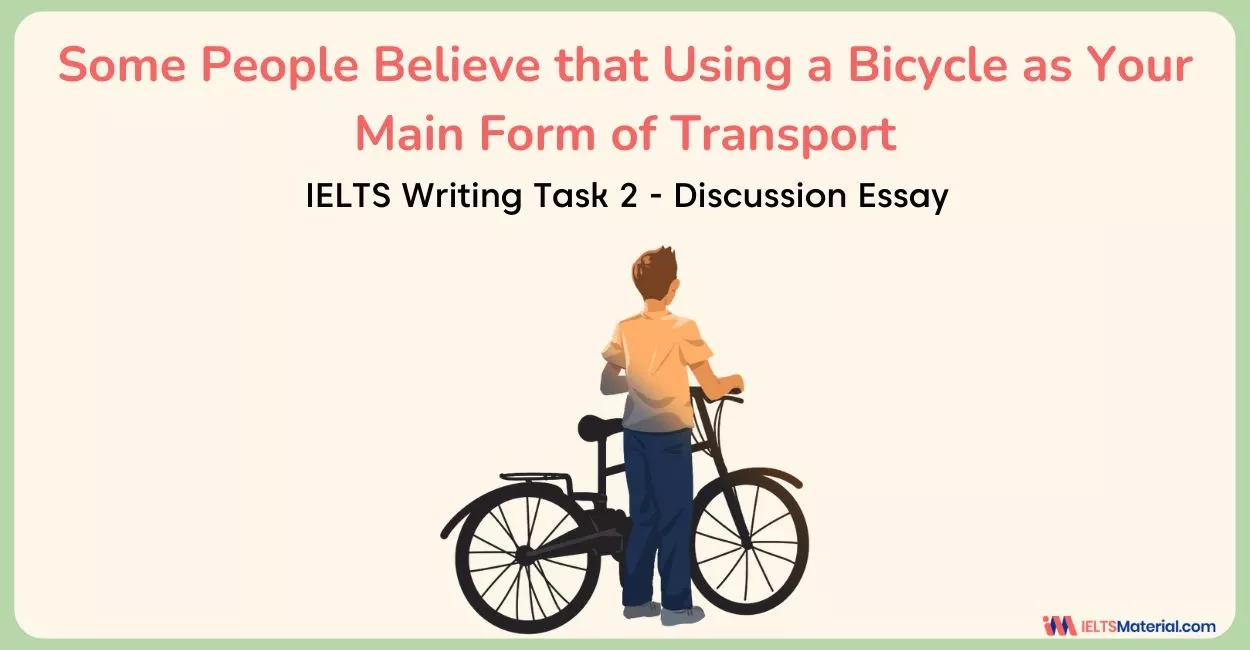
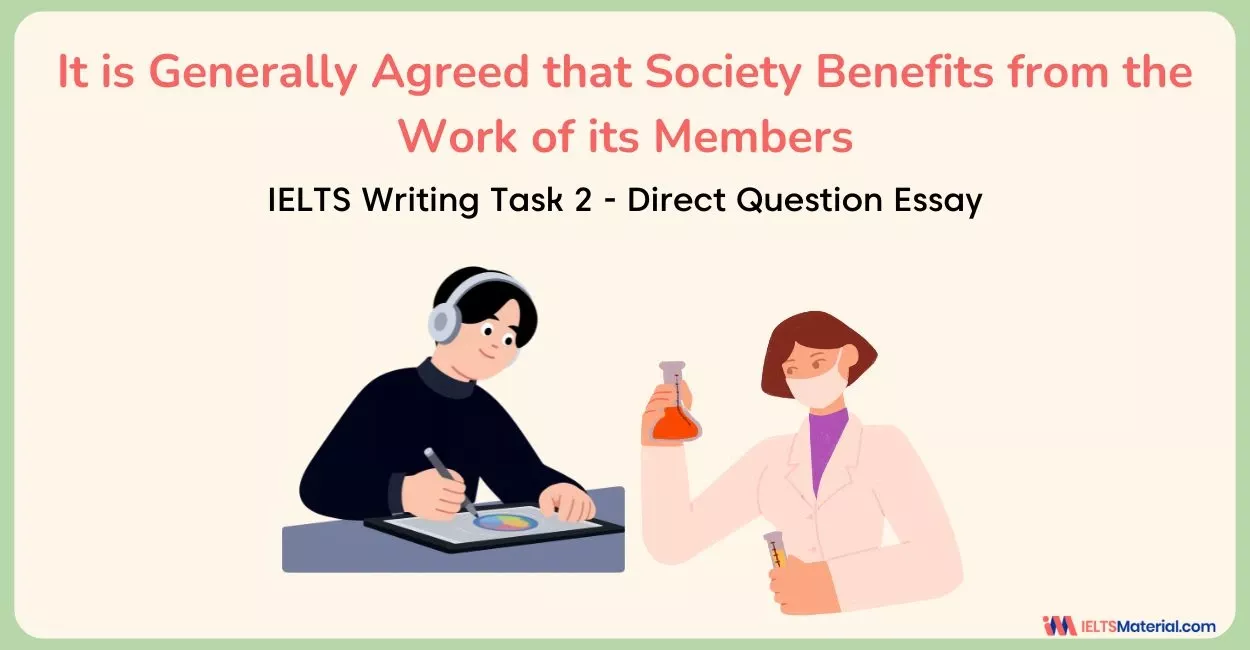
Recent Articles

Haniya Yashfeen
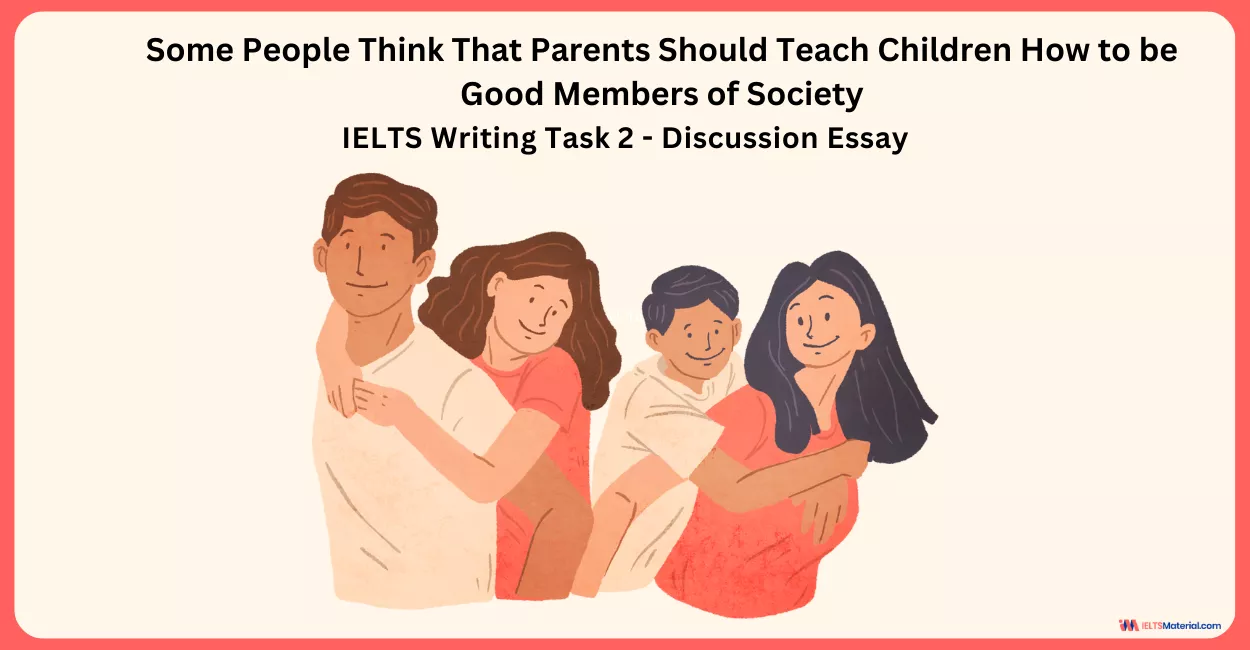

Prity Mallick

Kasturika Samanta


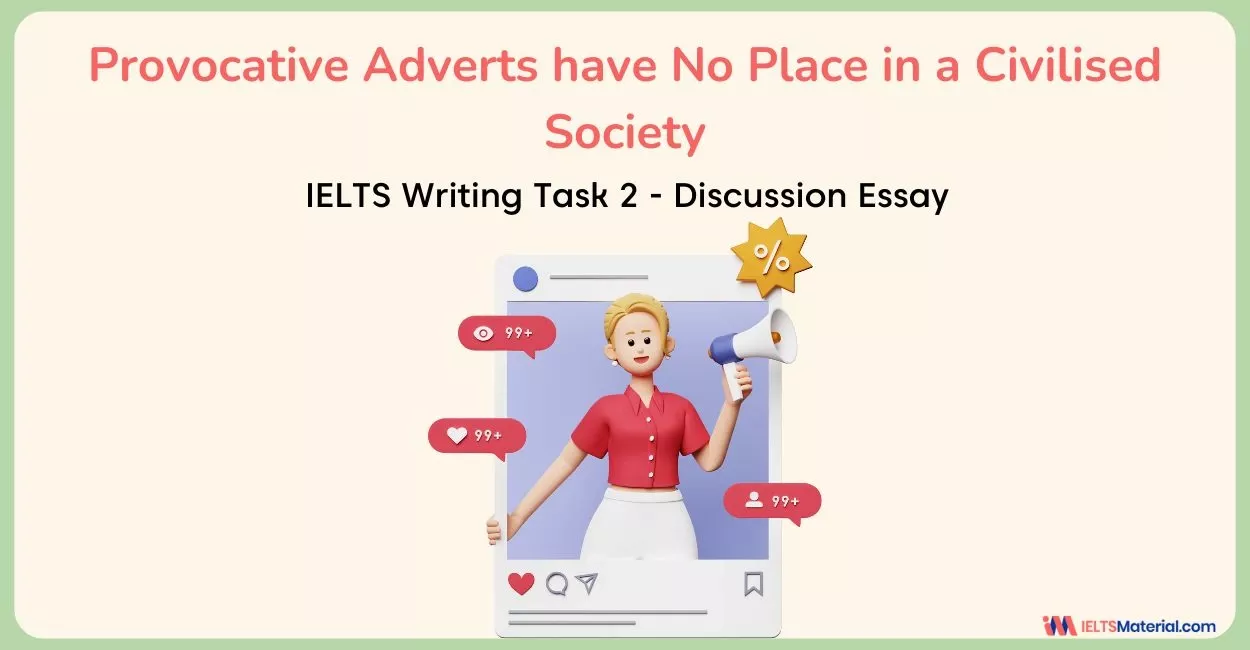
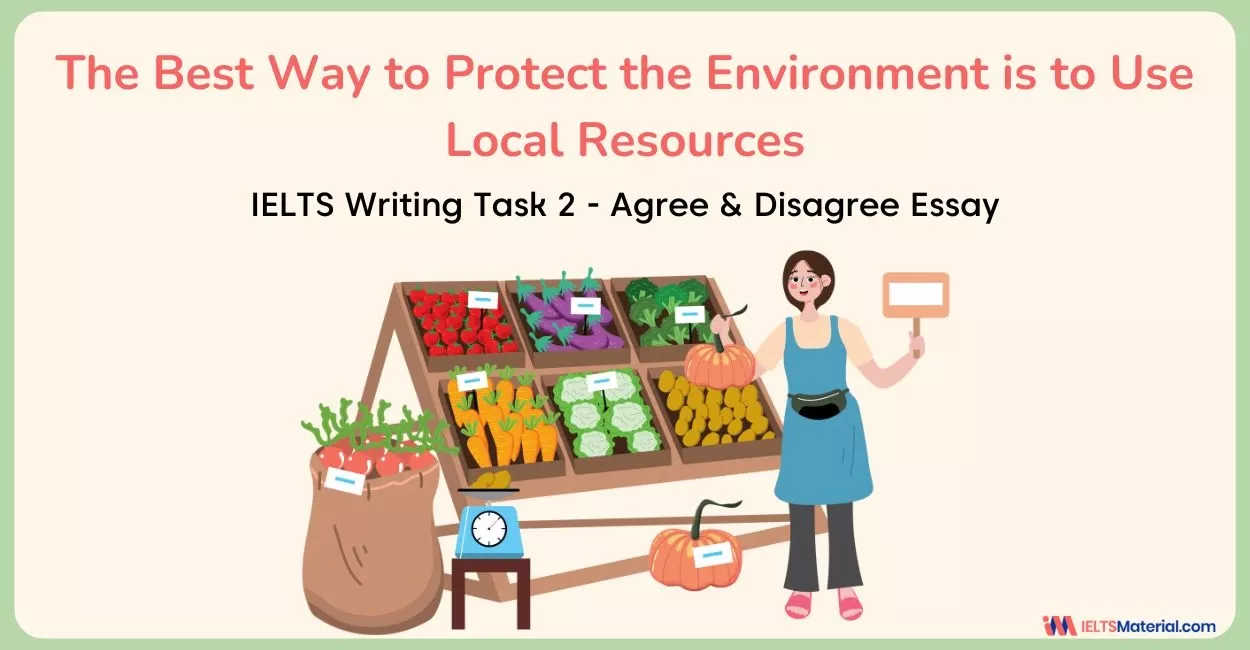


Post your Comments
6 Comments